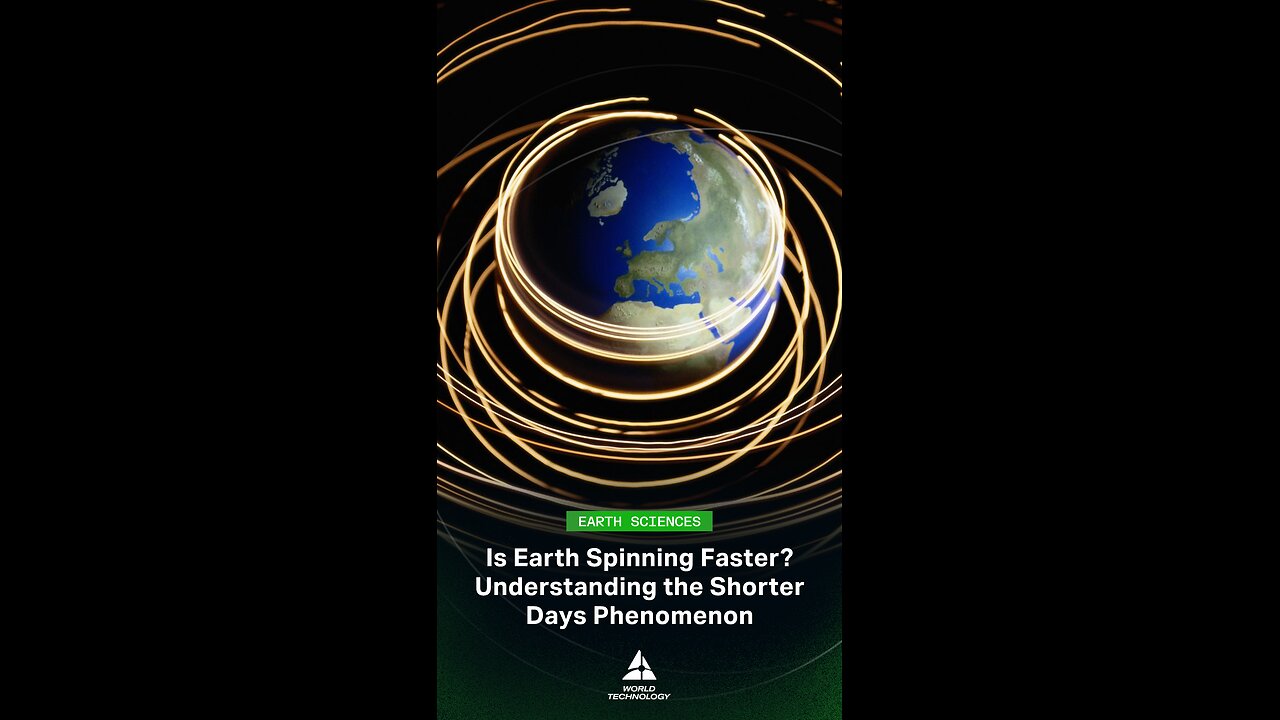Premium Only Content

Earth’s Days Are Getting Shorter and Scientists Are Racing to Keep Up #EarthScience #GPS
Did you know that Earth’s spin is not constant? Some days are slightly shorter than others, and the reason lies in a complex cosmic dance involving tides, winds, and the planet’s inner core.
Dennis McCarthy and his team explain how the moon’s gravity creates tides that gradually slow Earth down. Meanwhile, powerful atmospheric winds and shifting mass in Earth’s liquid core subtly change the speed of rotation. Even these tiny variations matter.
Using radio telescopes aimed at distant quasars and high precision GPS data, scientists can track changes in day length down to the millisecond. These shifts have real world consequences. They affect navigation systems and GPS accuracy, prompting experts to consider negative leap seconds to keep our clocks aligned with the planet.
We celebrate Dennis McCarthy and his team for revealing the hidden rhythms of our rotating world.
About World Technology:
Welcome to World Technology where science meets competition. We bring together brilliant minds and innovative thinkers from all around the globe to compete, collaborate, and celebrate advancements in Life Sciences, Earth Sciences, Industrial Sciences, and Data Sciences.
👉 Visit us: www.worldtechnology.games
👉 Our socials on Linktree: linktr.ee/worldtechnologygames
#EarthScience #GPS #WorldTechnology #LeapSecond #DennisMcCarthy #PlanetRotation #DayLength #Timekeeping #Tides #AtmosphericScience #RadioAstronomy #Quasars #Geophysics #TimeSync #ScientificDiscovery #CelebrateHumanIngenuity #SpaceTime #CoreDynamics #PlanetEarth #NavigationSystems #WorldTechnologyGames #PrecisionScience #EarthRotation #NegativeLeapSecond #EarthRhythms
-

Side Scrollers Podcast
11 hours agoSide Scrollers Presents: QUEEN OF THE Wii
74.2K5 -
 LIVE
LIVE
TundraTactical
7 hours agoMatt Hover (CRS Firearms) Released This Week, Glock Gen 6 is Here, and More Tonight At 9pm CST
192 watching -
 LIVE
LIVE
SpartakusLIVE
4 hours agoNEW Buyback Mode is the MOST FUN I've had on WZ in YEARS
165 watching -
 LIVE
LIVE
Adam Does Movies
2 hours agoThe Best & Most Overrated Christmas Movies - LIVE!
107 watching -
 LIVE
LIVE
BubbaSZN
5 hours ago🔴 LIVE - SLAYING ZOMBIES W/ CATDOG UNTIL MY BDAY AT 12AM!
85 watching -
 LIVE
LIVE
SlingerGames
2 hours agoRumble Spartans, ASSEMBLE! | Push for 400 Followers
41 watching -
 5:22:07
5:22:07
xXFadedAngelXx
5 hours agoSPARTAN NIGHT! Featuring the Communiy! Thanks @OhHiMark! & @Phyxicx! for the invite
157 -
 LIVE
LIVE
AdmiralSmoothrod
5 hours agohalo MCC - Multiplayer Rumble No. 21 - its gonna get sticky
36 watching -
 LIVE
LIVE
BlackDiamondGunsandGear
2 hours agoNEW Glock Gen6 / Still Hate them / After Hours Armory
21 watching -
 8:49
8:49
Hollywood Exposed
3 hours agoBill Maher Explodes After Killer Mike Refuses Any Accountability On Air
401